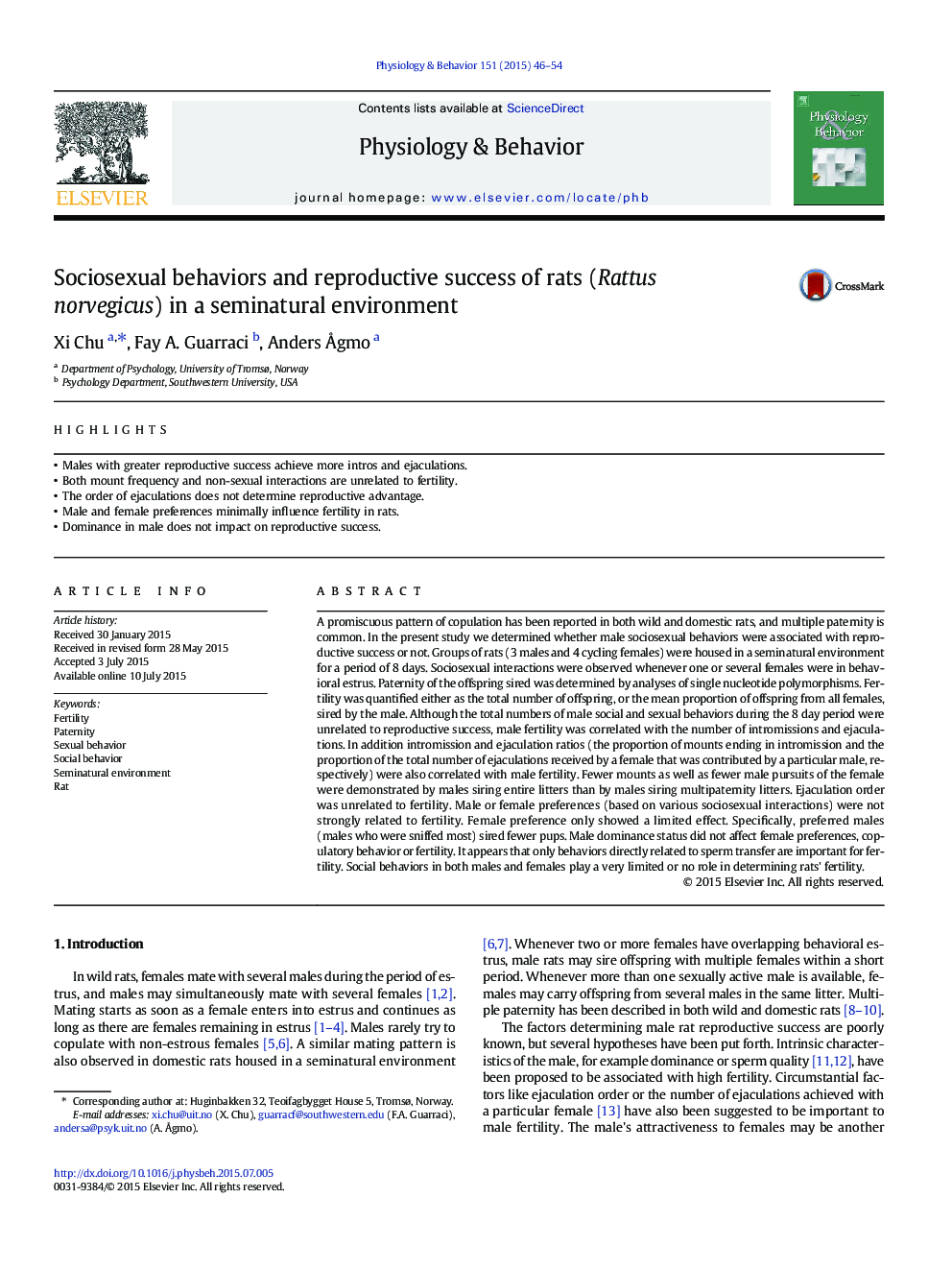| کد مقاله | کد نشریه | سال انتشار | مقاله انگلیسی | نسخه تمام متن |
|---|---|---|---|---|
| 5923230 | 1571166 | 2015 | 9 صفحه PDF | دانلود رایگان |
عنوان انگلیسی مقاله ISI
Sociosexual behaviors and reproductive success of rats (Rattus norvegicus) in a seminatural environment
دانلود مقاله + سفارش ترجمه
دانلود مقاله ISI انگلیسی
رایگان برای ایرانیان
کلمات کلیدی
موضوعات مرتبط
علوم زیستی و بیوفناوری
بیوشیمی، ژنتیک و زیست شناسی مولکولی
فیزیولوژی
پیش نمایش صفحه اول مقاله

چکیده انگلیسی
A promiscuous pattern of copulation has been reported in both wild and domestic rats, and multiple paternity is common. In the present study we determined whether male sociosexual behaviors were associated with reproductive success or not. Groups of rats (3 males and 4 cycling females) were housed in a seminatural environment for a period of 8Â days. Sociosexual interactions were observed whenever one or several females were in behavioral estrus. Paternity of the offspring sired was determined by analyses of single nucleotide polymorphisms. Fertility was quantified either as the total number of offspring, or the mean proportion of offspring from all females, sired by the male. Although the total numbers of male social and sexual behaviors during the 8Â day period were unrelated to reproductive success, male fertility was correlated with the number of intromissions and ejaculations. In addition intromission and ejaculation ratios (the proportion of mounts ending in intromission and the proportion of the total number of ejaculations received by a female that was contributed by a particular male, respectively) were also correlated with male fertility. Fewer mounts as well as fewer male pursuits of the female were demonstrated by males siring entire litters than by males siring multipaternity litters. Ejaculation order was unrelated to fertility. Male or female preferences (based on various sociosexual interactions) were not strongly related to fertility. Female preference only showed a limited effect. Specifically, preferred males (males who were sniffed most) sired fewer pups. Male dominance status did not affect female preferences, copulatory behavior or fertility. It appears that only behaviors directly related to sperm transfer are important for fertility. Social behaviors in both males and females play a very limited or no role in determining rats' fertility.
ناشر
Database: Elsevier - ScienceDirect (ساینس دایرکت)
Journal: Physiology & Behavior - Volume 151, 1 November 2015, Pages 46-54
Journal: Physiology & Behavior - Volume 151, 1 November 2015, Pages 46-54
نویسندگان
Xi Chu, Fay A. Guarraci, Anders Ã
gmo,